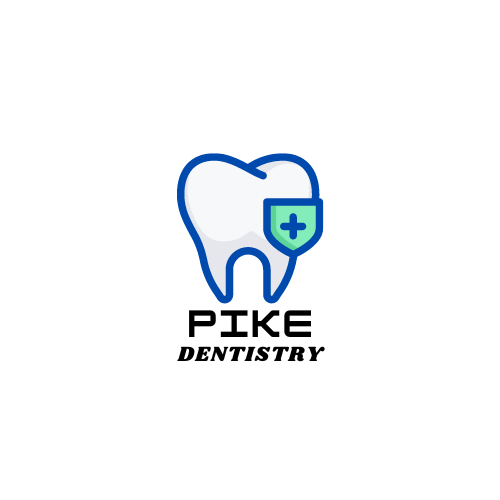Wondering if Medicare covers dental care? Original Medicare typically excludes routine dental services like check-ups, cleanings, and fillings. However, there are exceptions in specific medical situations. This guide will clarify what dental services Medicare might cover and explore alternative coverage options.
Key Takeaways
- Original Medicare generally does not cover routine dental services but makes exceptions for dental care necessary during hospital stays or integral to medical procedures.
- Medicare Advantage Plans, which often include dental coverage, vary in benefits offered, making it essential for beneficiaries to compare options before enrolling.
- Alternative dental coverage options, such as stand-alone dental insurance policies and discount dental programs, are available for beneficiaries who require dental care not covered by Medicare.
Overview of Dental Coverage Under Original Medicare

Original Medicare, comprising Part A (Hospital Insurance) and Part B (Medical Insurance), generally does not cover dental services. This exclusion extends to routine dental services such as cleanings, fillings, and dentures. For many Medicare beneficiaries, this gap in coverage often means forgoing essential dental care due to the high costs associated with these services.
However, there are specific exceptions where dental services might be covered by Original Medicare. For instance, if hospitalization is required due to a traumatic injury involving the jaw, teeth, or mouth, Medicare can cover the necessary dental services. Recent expansions have also allowed for the coverage of dental services integral to other medical procedures, such as exams prior to organ transplants.
Given these limitations, beneficiaries should explore additional coverage options. Relying solely on Original Medicare for dental care is not advisable due to its typical exclusion of routine dental services. Seeking alternative dental coverage through Medicare Advantage Plans or other means ensures comprehensive dental care.
Dental Services Covered by Medicare in Specific Situations
While Original Medicare does not typically cover routine dental services, there are certain dental services covered in specific situations. Recognizing these exceptions can be pivotal for beneficiaries with unique dental or medical circumstances.
One key area where Medicare provides dental coverage is during inpatient hospital stays due to severe dental complications. Additionally, Medicare covers dental services that are integral to other covered medical procedures, such as organ transplants or heart valve replacements. These scenarios can help beneficiaries navigate their Medicare benefits more effectively.
Inpatient Hospital Dental Services
Certain dental procedures may be covered if they are performed during inpatient hospital services for related medical conditions. This coverage is particularly relevant for beneficiaries who suffer from severe dental or oral complications that necessitate hospitalization.
For example, if a dental infection requires hospitalization due to its severity, Medicare might cover the necessary dental services during the hospital stay. Knowing these coverage details is essential for beneficiaries in critical situations.
Dental Services Integral to Medical Procedures
In specific cases, dental treatments are required before undergoing major medical procedures, such as heart surgeries or organ transplants. Medicare covers these dental services when they are necessary for the success of the medical treatments.
For instance, an oral examination might be needed before a heart surgery or transplant to ensure there are no infections that could complicate the procedure. Similarly, a dental procedure like tooth extractions may be required before beginning cancer treatments to eliminate potential sources of infection.
These integral services are crucial for overall health outcomes.
Exploring Medicare Advantage Plans for Dental Coverage

Medicare Advantage Plans, also known as Part C, offer an alternative to Original Medicare by combining the coverage of Parts A and B with additional benefits. One significant advantage of these plans is that they often include dental coverage, which is typically absent in Original Medicare.
Most Medicare Advantage Plans provide some level of dental benefits, with 97% offering access to dental care. However, the extent of this coverage can vary widely, making it crucial for beneficiaries to thoroughly review the dental benefits of each plan before enrolling.
Online tools and consultations with insurance agents can help compare different Medicare Advantage Plans and their dental coverage options.
What Are Medicare Advantage Plans?
Medicare Advantage Plans, also known as Part C, are health insurance plans that combine the coverage of Original Medicare Parts A and B with additional benefits. These plans often include services not covered by Original Medicare, such as vision, hearing, and dental care.
While not all Medicare Advantage Plans cover dental services, a significant number do, providing beneficiaries with access to essential medicare dental care that they might otherwise have to pay for out of pocket.
Comprehending the scope of these plans can aid beneficiaries in making informed healthcare coverage decisions.
Dental Coverage Options in Medicare Advantage Plans
Medicare Advantage Plans provide dental coverage that can differ widely. There are significant variations in the types of dental benefits available. Some plans provide extensive dental benefits, including routine preventive services and major dental care, while others may only cover basic dental services.
Preventive dental services, such as cleanings and exams, are often covered with lower out-of-pocket costs, whereas more extensive treatments like fillings and extractions might come with higher cost-sharing requirements. Reviewing each Medicare Advantage Plan’s dental benefits carefully ensures it meets your needs.
Choosing the Right Medicare Advantage Plan
Selecting the right Medicare Advantage Plan involves reviewing the specific dental services included and considering the associated costs. Not all plans offer the same level of dental coverage, so it’s important to compare the options available.
Consider factors like coverage limits, out-of-pocket costs, and the range of dental procedures covered to make an informed decision. Consulting with licensed insurance agents or using online comparison tools can provide valuable assistance in this process.
Alternative Dental Coverage Options for Medicare Beneficiaries
For those who find that Medicare Advantage Plans do not meet their dental care needs, there are alternative options available. These alternatives can ensure that beneficiaries receive necessary dental services without prohibitive costs.
Many Medicare Advantage Plans integrate additional coverage like dental and vision services, but for those who prefer not to switch from Original Medicare, stand-alone dental insurance policies and discount dental programs are viable options.
Stand-Alone Dental Insurance Policies
Stand-alone dental insurance policies are essential for Medicare beneficiaries needing dental coverage, as Medicare typically does not provide it. These policies can cover preventive services and share costs for many procedures, offering a more comprehensive approach to dental care.
Older adults can seek private dental coverage or choose Medicare Advantage Plans for dental coverage. Be mindful of additional costs for restorative dental work, which typically involves coinsurance and deductibles.
Discount Dental Programs and Other Alternatives
Discount dental programs offer lower rates for services in exchange for an annual fee. These programs can provide significant savings, with discounts of 30% to 40% off various dental services. Delta Dental, for example, offers a Patient Direct plan that provides discounts from participating dental service dentists.
Additionally, some states provide dental coverage under Medicaid based on income and asset requirements.
Costs and Payment Considerations for Dental Care
Knowing the costs and payment considerations for dental care is crucial for Medicare beneficiaries. Out-of-pocket expenses can accumulate quickly, making it essential to know what costs to expect and how to manage them.
Medicare Supplement Insurance plans can help cover out-of-pocket costs that Original Medicare doesn’t address. Additionally, some private Medicare Advantage Plans may cover only a portion of the cost for dental procedures like extractions or fillings.
Out-of-Pocket Costs for Medicare Beneficiaries
Non-covered dental services typically require beneficiaries to pay all associated costs out of pocket. For covered outpatient dental services, beneficiaries are responsible for 20% of the Medicare-approved amount after meeting the deductible.
The average coverage cap for dental services under Medicare Advantage Plans was $1,300 in 2021. Knowing these costs and planning accordingly is vital for managing dental expenses effectively.
Using Health Savings Accounts (HSAs) for Dental Expenses
Health Savings Account (HSA) funds can be used for eligible dental expenses tax-free, even after enrolling in Medicare. This can significantly reduce out-of-pocket costs for dental care during retirement.
HSA funds help mitigate the financial burden of dental expenses, allowing tax-free withdrawals for eligible costs. This can be a valuable strategy for managing dental care expenses effectively.
Consulting with Dental Professionals

Consulting with dental professionals is crucial for managing dental expenses and planning for future care. Building a long-term relationship with your dentist can facilitate better planning and decision-making.
Your dentist can offer insights into preventive care measures, flexible payment options, and strategies for managing costs. Discussing dental needs early helps avoid last-minute decisions and ensures comprehensive care.
Summary
In summary, navigating Medicare dental coverage requires understanding the limitations of Original Medicare, exploring the benefits of Medicare Advantage Plans, and considering alternative coverage options. Being aware of the costs and consulting with dental professionals can significantly impact your dental health and financial well-being.
Taking proactive steps to secure dental coverage and consult with professionals can ensure that you receive the necessary dental care without facing prohibitive costs. Your dental health is an integral part of your overall well-being, and understanding your options under Medicare is the first step towards maintaining it.
Frequently Asked Questions
Does Original Medicare cover routine dental services?
Original Medicare does not cover routine dental services such as cleanings, fillings, or dentures. Therefore, individuals should consider obtaining separate dental insurance for such needs.
Are there any dental services covered by Medicare?
Medicare does cover certain dental services, but only in specific situations such as hospitalization due to severe dental complications or when dental procedures are necessary for major medical treatments.
What are Medicare Advantage Plans?
Medicare Advantage Plans, or Part C, are health insurance plans that integrate coverage from Original Medicare Parts A and B, offering additional benefits such as dental services. These plans provide a comprehensive approach to healthcare for eligible individuals.
What are the alternatives to Medicare Advantage Plans for dental coverage?
The alternatives to Medicare Advantage Plans for dental coverage are stand-alone dental insurance policies and discount dental programs, offering comprehensive dental services and potential cost savings. These options ensure you receive the necessary dental care while possibly reducing out-of-pocket expenses.
Can Health Savings Accounts (HSAs) be used for dental expenses after enrolling in Medicare?
Yes, Health Savings Account (HSA) funds can be utilized for eligible dental expenses tax-free after enrolling in Medicare, providing relief for out-of-pocket costs.
